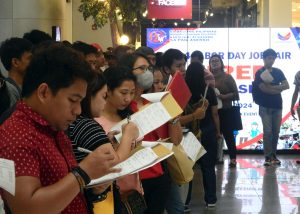Last part
AS these challenges are hounding electric cooperatives, one would ponder what its overseer, the National Electrification Administration (NEA), has been doing to help them.
Created under Republic Act 6038 in August 1969, NEA is mandated to ensure rural electrification is undertaken so that every corner of the country is provided with electricity.
This also becomes the policy that places electric cooperatives under the wings of NEA to ensure that its main goal is achieved.
Of late, however, even the NEA has become controversial.
For example, although it is hard to discuss the issue in this article as it is a legal one, the NEA became the fulcrum of the discussion in the bidding of the operations and management of the Zamboanga City Electric Cooperative after the National Association of Electricity Consumers for Reforms-Zamboanga questioned the process which, as expected, being overseen by NEA.
The takeover for the operations and management of the cooperative eventually got approved despite the legal question.
Just last month, the Philippine Anti-Corruption Commission also filed a case before the Office of the Ombudsman against NEA Administrator Edgardo Masongsong for reportedly allowing electric cooperatives to contribute funds for the campaign of a party-list in the 2019 elections.
NEA CONTROVERSY
The anti-corruption body accused Masongsong of not lifting a finger over the move of the cooperatives to help Philippine Rural Electric Cooperatives Association win a sit in the party-list voting.
But Masongsong denied the allegation, claiming that there was no public fund use in the campaign of Philreca. In justifying Masongsong’s point, Phireca party-list Rep. Presley de Jesus claimed the complaint was baseless as electric cooperatives are not government entities.
Masongsong, also served as manager of the Bukidnon Second Electric Cooperative before plunging into the government service. He eventually got elected to Congress as representative of 1-Care party-list and was eventually named as NEA when President Rodrigo R. Duterte took over the presidential rein.
WHICH WAY?
Because of their nature as cooperatives that lean on government for their operations – unlike regular cooperatives which rely on their members – electric cooperatives oftentimes rely on government for their sustainability because they cannot ask members, who are their consumers, to raise capital because they are non-stock non-profit.
This was the contention used by a group that tried to wrest the control of Daneco about 10 years ago, although there were reports that there were larger undertones in the move. The group claimed that because the entity was a cooperative, it must be affiliated with the Cooperative Development Authority, the body that monitors regular cooperatives, not NEA.
However, it was not known what the main goal of the group was, to just affiliate with CDA or to convert the cooperative into a CDA cooperative which would require members to pay dues and become active participants in its operations.
Even if the Daneco issue has been settled with NEA getting the upper hand, there is still the need to look into whether the creation of these cooperatives is worth revisiting.
One issue that needs resolving is how they can grow their entities so that they can serve their member-consumers effectively, including those who are in remote areas.
Virgilio Agunod, a top official of the Tagum City Chamber of Commerce and Industry, told TIMES that it is important for distributing utilities to expand their services as well as ensure their efficiency especially if they are servicing big centers like his city.
Agunod said that unless these cooperatives are modernized like private entities, economic growth of trading centers, and even providing rural areas with basic electricity, will continue to be wanting.
So what steps should electric cooperatives take, maintain the status quo or find ways to ensure that they grow?


